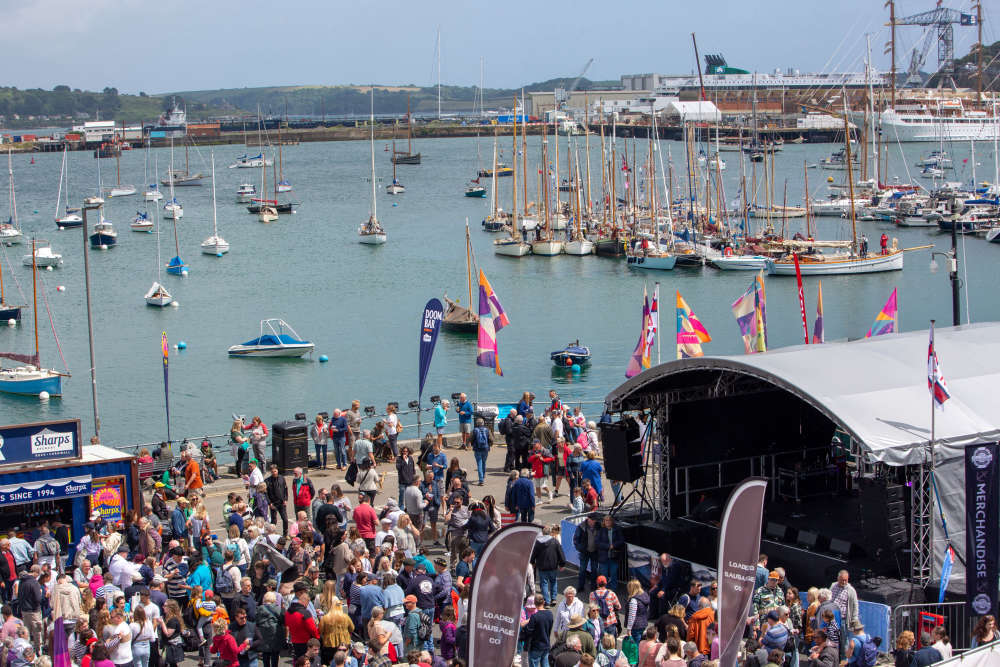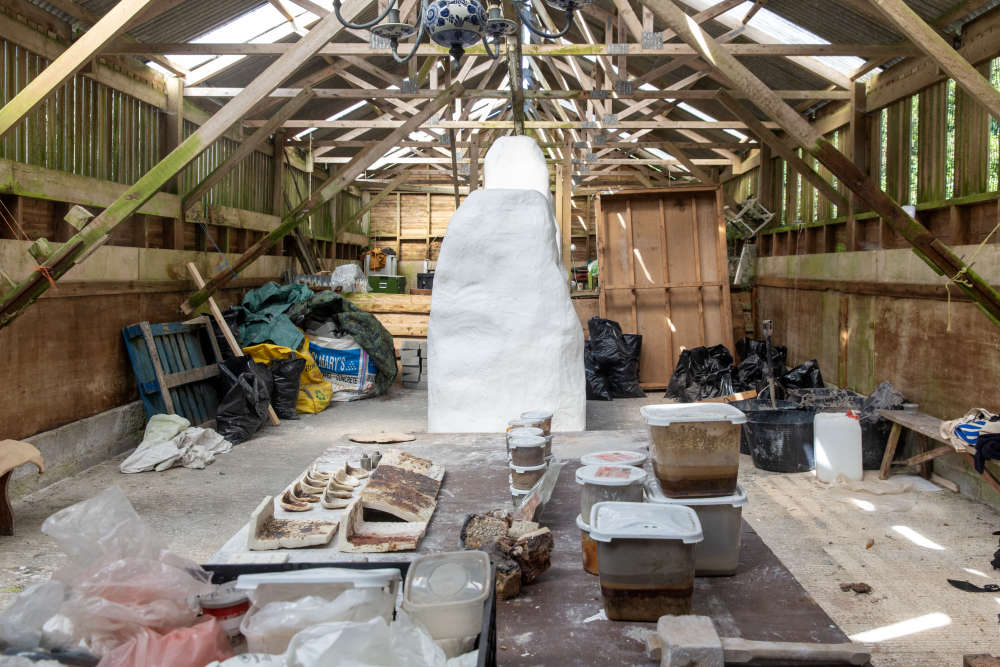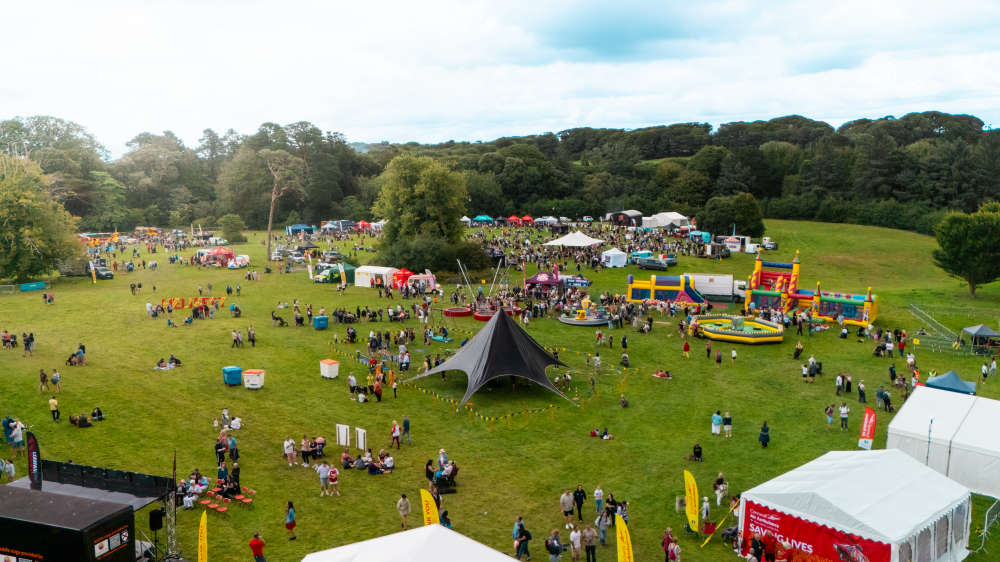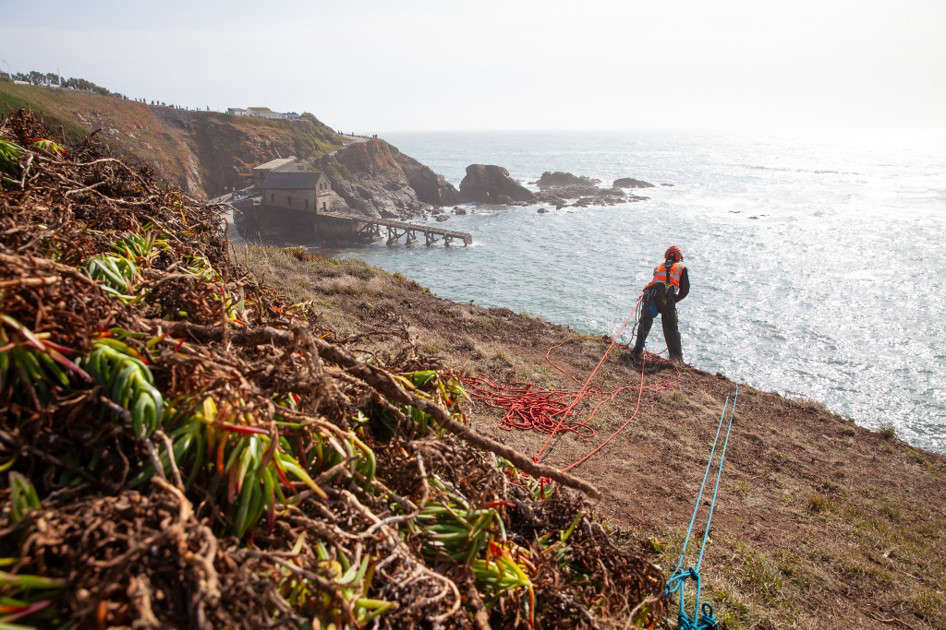
The world-leading Falmouth International Sea Shanty Festival thinks so as it turns 21.
As the award-winning Falmouth International Sea Shanty Festival makes its final preparations in Cornwall, the lead organisers, a global music researcher and the director of the Institute of Cornish Studies are collectively making a bold statement; they are asserting that sea shanties the most accessible, inclusive and ageless form of performance music ever.
For the last 20 years, the Falmouth gathering has pioneered ever-forward with explosive growth and demand. Falmouth International Sea Shanty Festival has provided inspiration for other ports and seafaring locations around the world who have followed their lead as the trend for shanty writing and performance events grows exponentially.
Last year, academic Nicholas Booker, a graduate research associate for the Center for Folklore Studies at The Ohio State University, USA, and a Ph.D. candidate in musicology and ethnomusicology, did his research amidst the Falmouth festival throngs.
Nicholas found that the Falmouth festival demonstrated uniquely enthusiastic engagement among young audiences saying, “The Falmouth International Sea Shanty Festival demonstrates that there are young audiences around the world who are finding new and vibrant ways to become a part of this musical history that stretches back to the “golden age of sail” two hundred years ago. Shanties have always been participatory and multi-cultural, and we see that tapestry of musical influences on display at the festival in Falmouth.”
Nicholas continues, “The success of, and the evident enthusiasm for, the Falmouth International Sea Shanty Festival demonstrates that shanties and songs of the sea are very much a living tradition. And Falmouth is an excellent place for this sort of festival because of its richly diverse and multi-cultural maritime history, its central place in the vibrant traditions of Cornish singing, and its youthful student population who are carrying this music into the future. Falmouth is a perfect musical crossroads both for honouring the tradition and for developing it for generations to come.”
Dr Garry Tregidga, is a leading member of the Cornish National Music Archive and co-Director of the Institute of Cornish Studies as well as a Senior History lecturer and director of the Institute of Cornish Studies at the University of Exeter's Penryn Campus in Cornwall. He says, “Cornish music can come in so many forms. From the area's rich folk traditions to music from its brass band and chapel culture along with its inspiration to classical composers. Sea shanties are an increasingly vibrant part of its musical identity.”
Dr Tregidga continues, “Sea shanties were originally songs of sea labour, devised by sailors to accompany certain arduous tasks onboard merchant sailing vessels. They were created to get people grafting together in unison on ships, and to be motivating and uplifting as they did so. Much as we have a lot of really talented singers with brilliant voices across our groups, it’s not a musical form that requires optimal ‘tunefulness.’ An absolute belter of a sea shanty is almost like the songs that take off on the football terraces – something recognisable, easy yet deeply meaningful to singers in so many personal ways. I think this is why it’s not too difficult to state that these songs may be the most accessible of any others in the world today.”
It was a set of ‘salty sea dogs’, known as Falmouth Shout, who decided to create the very first Falmouth shanty festival back in 2004. The idea was born in the back room of the legendary Seven Stars pub, and many of those original old boys are still singing in the festival each year, despite a number sadly passing on.
One of those founding members Gordon Kelly says, “It was just an idea in the pub one night and we just thought why not – we’ll give it a go, together with the RNLI Falmouth station, to bring groups together, have fun and raise some funds."
Year-on-year, the festival organisers are seeing a rise in the number of female-only shanty groups, more children who are being taught songs of the sea from a young age in schools, a wider appeal amongst the Gen Z population with younger groups applying to perform and in the last couple of years, a popular LGBTQIA+ group.
This year’s Falmouth International Sea Shanty Festival takes place from Friday 13th to Sunday 15th June 2025, and more than 85 local, national and international sea shanty groups will perform in around 30 venues, in what has easily become the largest free nautical music and song festival in Europe. More than 50,000 visitors flood into the port each day to see sea shanty groups come together to perform on stages, in cafes, pubs, hotels, and community venues, bringing the history, heritage and culture of maritime song to life in this vibrant Cornish port.
Richard Gates, Festival Chair said, “It is incredible to see the variation of groups that come through year-on-year which is testament to the growing popularity of this tradition. They’re all joining in with the singing at full voice and the atmosphere is incredible, and feeling of community is always brilliant no matter what time of day or night it is. It’s great to see, and experience, not just the popularity, but the physical and sensory enjoyment of the good old sea shanty. And great to witness how our festival is driving this historical form of performance and song ever-forward in new, and exciting, contemporary ways.”
For more information on the festival including the detailed schedule, visit the website, www.falmouthseashanty.co.uk.



 Cornwall man given suspended prison sentence for running illegal waste operation
Cornwall man given suspended prison sentence for running illegal waste operation
 Modern Monuments Celebrating Communities, Past and Present
Modern Monuments Celebrating Communities, Past and Present
 Heligan beaver babies named by local schools
Heligan beaver babies named by local schools
 Tea bringing NHS colleagues closer together
Tea bringing NHS colleagues closer together
 Almost 5,000 people flock to Helifest to see second lifesaving helicopter
Almost 5,000 people flock to Helifest to see second lifesaving helicopter
 Cornwall Air Ambulance tasked to almost 500 missions in first half of 2025
Cornwall Air Ambulance tasked to almost 500 missions in first half of 2025
 Rare plant species uncovered in Cornwall
Rare plant species uncovered in Cornwall
 Boardmasters reveals a significant reduction in anti-social behaviour and zero confirmed spiking incidents recorded at this year's festival
Boardmasters reveals a significant reduction in anti-social behaviour and zero confirmed spiking incidents recorded at this year's festival


